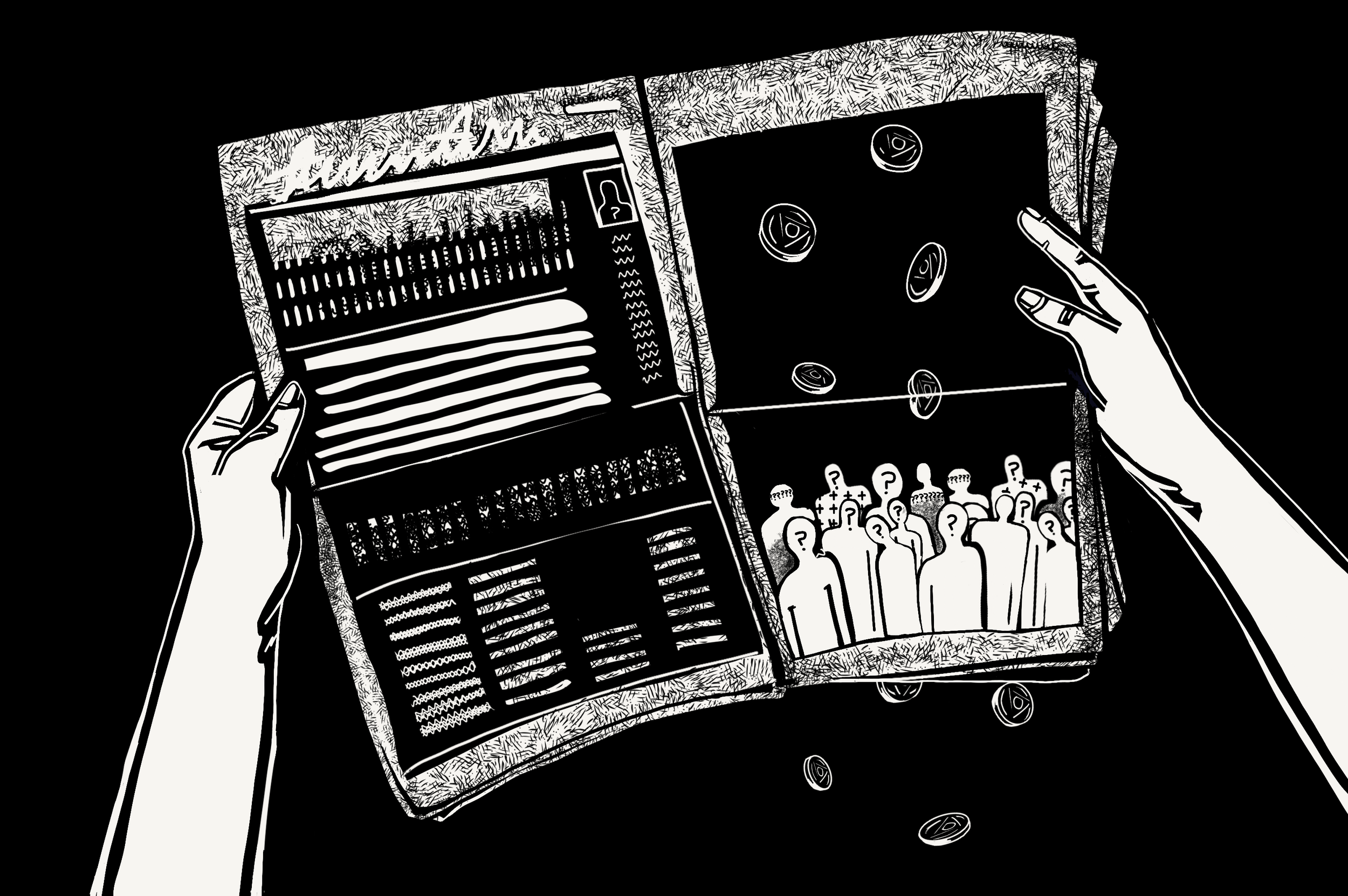My dad is a friend of Bill.
That’s not the sort of thing you’re supposed to tell people. Alcoholics Anonymous thrives on the latter half of its name, but my dad was the kind of guy who would keep his chips in the cupholder of his work van. I never met his sponsor or anyone he sponsored, and he probably hasn’t been to a meeting in 20 years. But he swears by the program. Bill W. saved his life.
I must’ve been 15 years old when I saw an episode of “Penn & Teller: Bullshit!” about 12-step programs. The Libertarian-minded magician/comedian duo were taking fellowships like AA to task not merely for their shadowy, unverifiable success rates but also for the fact that many judges often include 12-step programs as penalties for breaking the law. AA and other “anonymous” programs are inherently spiritual-ish—Bill W. came to his own sobriety after “a dramatic spiritual experience” in 1935—and require surrender to a “higher power.” To Penn and Teller, this was tantamount to court-mandated religion and, well, you know the name of the show.
12-step and other sobriety-promoting organizations expose themselves to this kind of scrutiny by nature of their esoterism. While anonymity is important for making participants feel comfortable and for cultivating a close-knit community, it also keeps the outside out. In the decades since “Bullshit!” and my own dad’s sobriety journey, sobriety and wellness programs have become more commonplace and less stigmatized, but there is still a confounding amount of secrecy, even from organizations within the beer industry.
Take, for example, the Brewer’s Association.
The BA has recently increased the amount of training and resources it’s offering to its membership to help understand, predict, and address problem drinking in the craft beer industry. As I reported in February, the organization is deeply invested in safety training, and in the past year, it has published resources on recognizing substance abuse, supporting sober employees, and identifying problem drinking, all authored by Human Resources Director Holly Haslam. But when asked to discuss these resources, the impetus for their creation, and the reaction from the membership for this column, Haslam and the BA declined. They would only say that supporting sobriety was a priority insofar as it “affects all other areas of safety in a brewery” and that feedback from the membership has been “extremely positive” thus far.
“Regardless of whether or not someone drinks alcohol, they have a lot to contribute to this industry,” Haslam said over email. “By learning ways to support sobriety and responsible consumption we are allowing ourselves to benefit from the valuable contributions of those members of our community.”
The BA is far from the only organization offering these resources, though. 501(c)(3) charity Serving Those Serving was founded in 2019 to offer mental health and addiction counseling to folks in the Minnesota hospitality industry. Women of the Vine & Spirits just announced an expanded Hospitality Assistance Program in collaboration with the United States Bartenders’ Guild and sponsored by Tito’s Handmade Vodka. In the U.K., alcohol and alcohol-adjacent companies like Carlsberg, Heineken UK, and Tesco have funded alcohol abuse education through the Drinkaware program since 2006. Employee assistance programs are now commonplace in craft beer benefit packages in the United States.
All these programs are press-released and received with all the goodwill that should be associated with their formation. It is, in whatever form, a net good when people in need are provided resources that can help them with their drinking. But the reporting normally stops at the top of the press cycle. There is no reporting made available about these programs’ successes or even verbiage that defines what “success” might be. When I reached out to WOTVS to talk about their program and its impact, they politely said no.
This is where I feel my inner Penn Jillette—a metastasized skepticism, fed by ambiguity—emerge. But the silence is a purposeful one, even if it isn’t satisfying. Somewhere between me and the press agents is a sea of people who have, in complete discretion, sought out these programs or read their materials and found serenity. If you’re one of these people, I do want to hear from you, but if serenity is what you find in your anonymity, serenity you deserve. That’s what Bill was always talking about, after all.
I could push back on these shadowy rebuffs, I could dig and find doubt. I could rebel against the not knowing, broadcasting long theses and demanding empirical forthcoming.
Or I could just have a little faith in the unknown.



